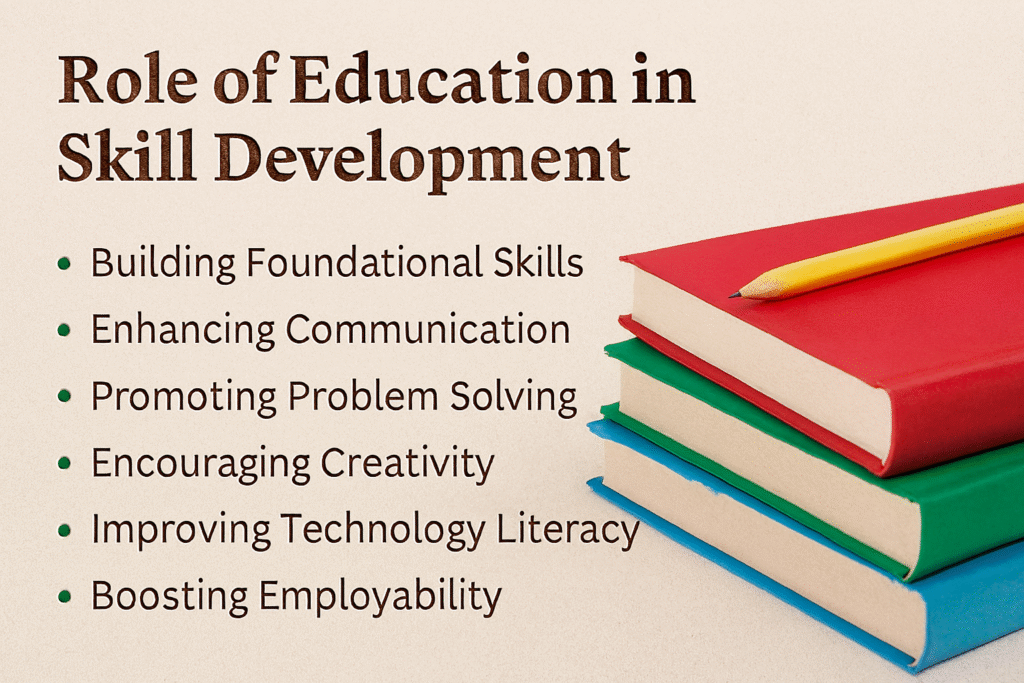In today’s fast-evolving world, education is no longer just about textbooks and exams — it’s about preparing individuals with the skills they need to thrive. Whether you’re a student aiming for academic success or a professional seeking personal growth, understanding the role of education in skill development is essential.
This blog explores how education shapes critical skills, enhances employability, and fosters lifelong learning. At easedu, we believe that true education goes beyond marks — it builds mindsets, capabilities, and confidence.
What Is Skill Development?
Skill development refers to the process of learning, refining, and applying abilities that are essential for personal, academic, and professional success. These include:
-
Hard skills: Technical abilities like coding, accounting, data analysis, etc.
-
Soft skills: Communication, leadership, teamwork, emotional intelligence
-
Life skills: Time management, adaptability, decision-making, problem-solving
CBSE vs ICSE
How Education Drives Skill Development
1. Foundation Through Formal Learning
From primary school to higher education, academic institutions lay the groundwork for essential skills like literacy, numeracy, and critical thinking. Subjects like math, science, and language build analytical and cognitive abilities.
2. Communication & Collaboration
Group projects, presentations, and classroom discussions help students develop interpersonal skills. These are vital for teamwork, leadership, and workplace success.
3. Practical & Vocational Training
Modern education systems now integrate vocational courses, internships, and hands-on labs that teach real-world applications — bridging the gap between theory and practice.
4. Critical Thinking & Problem Solving
Subjects like mathematics, science, and social studies encourage students to analyze, evaluate, and solve problems — skills that are crucial in every career path.
5. Creativity & Innovation
Art, design, and extracurricular activities nurture imagination and innovation. Education helps students think outside the box and express ideas confidently.
6. Digital Literacy & Tech Skills
With the rise of online learning and digital tools, students now gain exposure to coding, content creation, and digital communication — preparing them for tech-driven careers.
NFAT vs CUET
Education & Employability
In today’s competitive job market, employers seek candidates who are not just qualified but skilled and adaptable. Education plays a key role in:
-
Enhancing job readiness
-
Improving communication and leadership
-
Building domain-specific expertise
-
Encouraging continuous learning and upskilling
Education for Lifelong Learning
Skill development doesn’t stop after graduation. Education instills a mindset of curiosity, adaptability, and growth, helping individuals:
-
Learn new technologies
-
Switch careers
-
Start businesses
-
Contribute meaningfully to society
National Education Policy (NEP) & Skill Integration
India’s NEP 2020 emphasizes skill-based education from early stages. It promotes:
-
Vocational training in schools
-
Coding and digital literacy
-
Multidisciplinary learning
-
Internships and real-world exposure
This shift ensures that students are not just exam-ready but life-ready.
Final Thoughts
Education is the engine — skill development is the fuel. Together, they power personal growth, career success, and societal progress. Whether you’re a student, teacher, or lifelong learner, investing in education means investing in your future.
FAQs “Role of Education in Skill Development”
1. What is the role of education in skill development?
Education builds foundational, technical, and soft skills that prepare individuals for personal growth, career success, and lifelong learning.
2. How does education improve employability?
It equips learners with job-ready skills like communication, problem-solving, and digital literacy — making them more competitive in the workforce.
3. What types of skills are developed through education?
Academic, vocational, soft skills (like teamwork), digital skills, and life skills such as time management and adaptability.
4. How does NEP 2020 support skill development in India?
NEP 2020 integrates vocational training, coding, internships, and multidisciplinary learning from school level to boost practical skills.
5. Can education help in personal development?
Yes. Education fosters confidence, critical thinking, emotional intelligence, and a growth mindset — essential for personal success.
6. Why is skill-based education important today?
Because industries demand adaptable, skilled professionals. Skill-based education bridges the gap between academic knowledge and real-world needs.
7. What is the difference between education and skill development?
Education is the structured process of learning; skill development is the outcome — the practical abilities gained through that learning.
8. How can students develop skills beyond the classroom?
Through internships, online courses, extracurriculars, volunteering, and self-learning platforms like.

